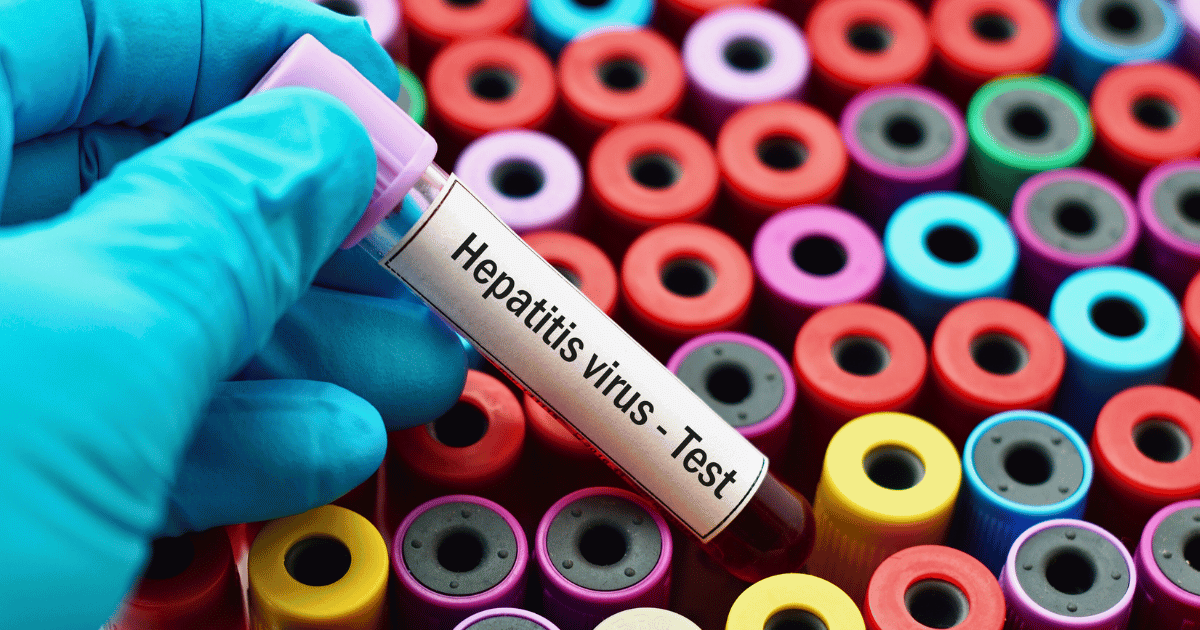Discovering you’re pregnant is a momentous event, but for women already living with Hep C, it brings a unique set of concerns and questions. In such cases, it is crucial for women o understand the risks, testing methods, and treatment options available when pregnant or trying to get pregnant.
In this article, we’ll dive into how the hepatitis c virus (HCV) affects pregnancy and explore the risks and treatment options to ensure the best outcomes for both mother and baby. Whether you’re an expectant mother or know someone who is, this guide will provide essential insights and support.
Understanding Hepatitis C Virus Infection
Hepatitis C (Hep C) is a viral liver infection that an estimated 2.4 to 4.7 million people are currently living with in the United States. Despite rumors to the contrary, hepatitis C is almost always passed through blood-to-blood contact with someone else who has active Hep C. Infection can be acute or chronic.
Acute hepatitis C refers to the initial six months after the virus enters the body. During this period, some individuals can clear the virus without treatment. However, it’s important to consult a health professional as soon as possible if you think you are experiencing symptoms. In most cases, if left untreated, the infection becomes chronic.
Chronic hepatitis C infection persists beyond six months and can last a lifetime if not treated. Chronic infection can lead to severe liver problems, including cirrhosis, liver failure, and liver cancer. For pregnant women, managing chronic hepatitis C infection is critical to ensure their health and the health of their babies.
Maternal HCV Risks
Disease Progression
Pregnancy does not accelerate the progression of a hepatitis C infection in women. However, liver function may vary during pregnancy, necessitating close monitoring for those dealing with maternal HCV infection.
Potential Complications
Women living with hepatitis C are at a slightly higher risk of developing pregnancy complications such as gestational diabetes, cholestasis of pregnancy, and preterm labor. It is essential to work closely with healthcare providers to manage these risks.
Fetal HCV Risks
Vertical Transmission
The primary risk to the baby is the vertical transmission of the hepatitis C virus from mother to child. However, most babies do not pose a risk of catching Hep C. There is only a 4-6% chance of your baby being born with Hep C.
If your baby is born with a Hep C infection, there is a possible 50% chance that they may clear their infection naturally within the first 12 months.
Adverse Outcomes
Babies born to maternal HCV infection virus may experience adverse outcomes, including low birth weight, preterm birth, and the need for neonatal intensive care unit (NICU) admission.
Perinatal HCV infection can also occur, with risk factors such as:
- Maternal viral load
- Intrapartum exposure to maternal virus
- HIV co-infection contributing to the rate of vertical transmission to infants.
Proper prenatal care can help mitigate some of these risks.
Types of HCV Testing for Pregnant Women

Routine Testing
Routine prenatal screening for the hepatitis C virus is not universally recommended for all pregnant women. However, it is advised for high-risk groups. High-risk women include those with a history of intravenous drug use, HIV infection, or unexplained liver disease. Discuss with your healthcare provider if you fall into these categories.
Antibody Testing
The first step in screening is testing for HCV antibodies. A positive result indicates exposure to the virus but does not confirm an active or chronic infection. Further testing is needed for confirmation.
RNA Testing
If antibodies are detected, an HCV RNA test is performed to determine if there is an active hepatitis C infection. This test checks for the presence of the virus’s genetic material in the blood, specifically measuring serum HCV RNA levels.
Hep C and Pregnancy Treatment Options
Currently, the use of direct-acting antivirals (DAAs) for chronic hepatitis C virus (HCV) treatment is not recommended during pregnancy due to limited safety data.
These hepatitis C virus treatments are highly effective but are typically deferred until after delivery to ensure the safety of both mother and baby.
Managing Chronic Infection During Pregnancy
For women with a chronic hepatitis C infection, managing the condition during pregnancy is essential. Regular monitoring and close collaboration with healthcare providers can help manage the risks associated with chronic infection. While HCV treatments are not recommended during pregnancy, careful planning for postpartum treatment is crucial.
After Delivery Treatment Options

Antiviral Therapy
Postpartum women can be treated with DAAs. Screening pregnant women for hepatitis B virus (HBV) is crucial as part of the evaluation for liver disease and to prevent transmission from mother to infant. These HCV treatments are highly effective in achieving sustained virologic response (SVR) and eradicating the virus. Starting treatment after delivery ensures that the baby is not exposed to any potential risks from the medication.
Postpartum Care and Treatment
After delivery, women need to follow up with their healthcare providers to start hepatitis C virus treatments. Direct-acting antivirals (DAAs) have revolutionized the treatment of chronic hepatitis C infection.
These medications have high cure rates and few side effects. Starting treatment postpartum ensures that the mother can achieve a sustained virologic response (SVR), effectively curing the infection and reducing the risk of liver complications.
Breastfeeding
The hepatitis C virus is not transmitted through breast milk. Therefore, breastfeeding is generally considered safe for women with Hep C unless they have cracked or bleeding nipples. Always consult with a healthcare provider for personalized advice.
Infant Testing and Follow-up
Infants born to hepatitis C virus-positive mothers should undergo an HCV RNA test at 2-3 months of age to detect active hepatitis C infection. This early testing helps identify any infection promptly.
Antibody Testing
Antibody testing can be performed at 18 months to confirm the resolution of maternal antibodies. This test ensures that the infant is not carrying the hepatitis C virus.
Long-term Monitoring
If an infant tests positive for the hepatitis C virus, they should be monitored and evaluated by a pediatric specialist. Long-term follow-up is crucial to manage the infection and consider appropriate HCV treatments.
Need Help with Managing Hep C and Pregnancy?
Understanding hepatitis C infection during pregnancy is essential for protecting both mother and child. Women with HCV face specific risks, but with proper care, testing, and postnatal treatment, outcomes can be positive.
Connect to Cure is dedicated to supporting people with hepatitis C by providing vital information and linking them to the care they need. Together, we can manage hepatitis C infection and ensure healthier futures for our families.
Contact us today to learn more about how to manage hepatitis C during or after pregnancy.


